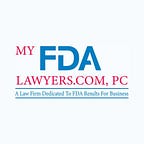Navigating FDA Regulations: The Role of FDA Lawyers and Attorneys in Ensuring Compliance with FDA Label Requirements
Introduction
The Food and Drug Administration (FDA) plays a crucial role in safeguarding public health by regulating the safety and efficacy of food, drugs, medical devices, cosmetics, and more. For businesses operating in industries governed by the FDA, compliance with regulatory requirements is paramount. This is where FDA lawyers and attorneys come into play. In this comprehensive guide, we will explore the significance of FDA lawyers, the intricacies of FDA labeling requirements, and the role of FDA attorney in ensuring compliance.
Understanding FDA Regulations
The FDA, a federal agency within the United States Department of Health and Human Services, is responsible for protecting and promoting public health through the regulation and supervision of various products. These include food safety, pharmaceuticals, medical devices, dietary supplements, cosmetics, and tobacco products. The agency’s regulatory authority covers everything from product development to manufacturing, labeling, advertising, and distribution.
FDA regulations are extensive and complex, designed to ensure that products marketed to consumers are safe, effective, and properly labeled. Failure to comply with these regulations can result in severe consequences, including product recalls, regulatory actions, fines, and even criminal charges. As such, businesses operating in FDA-regulated industries must navigate these regulations carefully to avoid potential pitfalls.
The Role of FDA Lawyers
FDA lawyers specialize in regulatory law pertaining to the FDA and are instrumental in helping businesses comply with FDA regulations. These legal professionals possess in-depth knowledge of FDA laws and policies and work closely with clients to navigate the regulatory landscape. Their responsibilities may include:
Compliance Counseling: FDA lawyers advise businesses on how to comply with FDA regulations at every stage of product development and marketing. They review product formulations, labeling, advertising materials, and manufacturing processes to ensure compliance with FDA requirements.
Regulatory Filings: FDA lawyers assist clients in preparing and submitting various regulatory filings, including new product applications, drug approvals, premarket notifications (510(k)), and premarket approval applications (PMA).
Responding to FDA Actions: In the event of FDA inspections, warning letters, or enforcement actions, FDA lawyers represent their clients and help them respond effectively to resolve issues and mitigate potential penalties.
Litigation and Dispute Resolution: When disputes arise with the FDA or other parties regarding regulatory compliance, FDA lawyers provide legal representation in administrative hearings, civil litigation, and alternative dispute resolution processes.
The expertise of FDA lawyers is invaluable for businesses seeking to navigate the complex regulatory landscape and ensure compliance with FDA requirements.
Understanding FDA Labeling Requirements
One of the key areas of FDA regulation is labeling requirements. FDA label regulations are intended to provide consumers with accurate and essential information about products to enable informed decision-making. Whether it’s food, drugs, medical devices, cosmetics, or dietary supplements, proper labeling is critical for compliance. Here are some key aspects of FDA labeling requirements:
Principal Display Panel (PDP): The PDP is the part of the label that is most likely to be displayed, presented, shown, or examined by consumers. It typically includes the product name, net quantity of contents, and essential information necessary for proper usage.
Information Panel: The information panel contains additional required labeling information, such as ingredients, nutrition facts, directions for use, warnings, and any other information required by FDA regulations.
Nutritional Labeling: For food products, nutritional labeling is mandatory and must include information on serving size, calories, nutrients, and percent daily values. This information helps consumers make informed dietary choices.
Drug Labeling: FDA-approved drug labels must include important information such as indications and usage, dosage and administration, contraindications, warnings, precautions, adverse reactions, and patient counseling information.
Medical Device Labeling: Medical device labeling must provide essential information for safe and effective use, including device description, indications for use, contraindications, warnings, precautions, and instructions for use.
Compliance with FDA labeling requirements is essential for businesses to avoid regulatory actions and ensure consumer safety and confidence in their products.
The Role of FDA Attorneys in Ensuring Label Compliance
FDA attorneys specialize in FDA regulatory law and play a crucial role in ensuring that product labels comply with FDA requirements. Their responsibilities may include:
Label Review and Compliance: FDA attorneys review product labels to ensure they meet all FDA regulatory requirements, including content, format, and placement of information.
Labeling Strategy: FDA attorneys work with businesses to develop labeling strategies that comply with FDA regulations while effectively communicating product information to consumers.
Labeling Claims: FDA attorneys advise businesses on the substantiation of labeling claims to ensure they are truthful, accurate, and not misleading, in accordance with FDA guidelines.
Labeling Changes and Updates: FDA attorneys assist businesses in navigating the process of making changes or updates to product labels, including obtaining FDA approval when necessary.
Enforcement Actions: In the event of FDA enforcement actions related to labeling violations, FDA attorneys provide legal representation and assistance in resolving issues with the agency.
By leveraging their expertise in FDA regulations, FDA attorneys help businesses navigate the complexities of labeling requirements and mitigate the risk of non-compliance.
Conclusion
Navigating FDA regulations, particularly in terms of labeling requirements, is essential for businesses operating in FDA-regulated industries. FDA lawyers and attorneys play a crucial role in ensuring compliance and guiding businesses through the regulatory landscape. From compliance counseling to representation in enforcement actions, these legal professionals provide invaluable support to businesses seeking to navigate FDA regulations successfully. By understanding the significance of FDA lawyers and attorneys and adhering to FDA labeling requirements, businesses can protect consumer safety, avoid regulatory pitfalls, and maintain compliance with FDA regulations.
